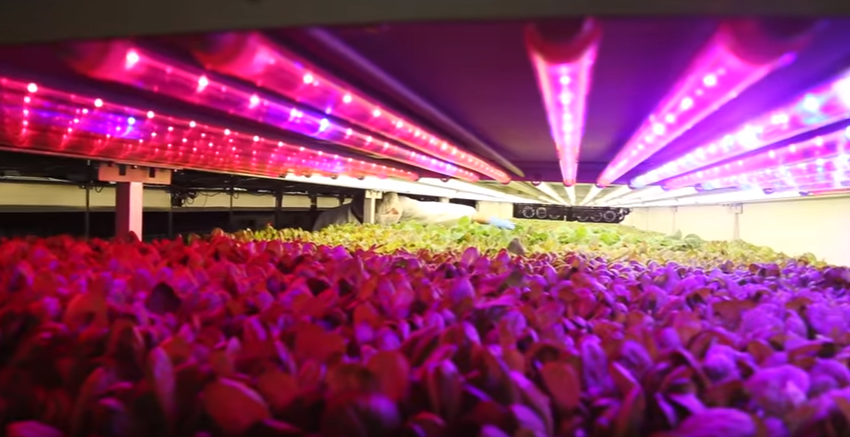
Aeroponic Farming Is The Most Hopeful, Forward-Thinking Way To Feed A Growing Population To Come Along In A While
When you think of Newark, New Jersey–assuming you do at all–there are a few things that come to mind: crime, urban decay, crime, unemployment and crime are probably among the list toppers.
But one company based there is making a big splash in a field that is sure to grow in the future–right along with the population.
Aerofarms is the company, and they are at the forefront of a method called “aeroponics” that is being developed to grow food using an extremely small footprint and very little water.
Stacked vertically in layers in a controlled indoor environment, instead of soil, AeroFarms uses a reusable cloth medium that is made from recycled plastics in which to grow lettuce and other leafy salad greens. The company uses LED lights in lieu of sunshine, which give the plants only certain types of light on the spectrum.
And by using a misting technique instead of wasteful old-fashioned watering, the company claims it uses 95 percent less water.
If this system sounds familiar it is because AeroFarms isn’t the only company who sees the need for massive changes in the way we provide ourselves with food, if the human race intends to keep up with the expanding population, water scarcity, soil depredation, and the way we are cavalierly poisoning the land and water we do have through the use of cancer-causing chemicals like glyphosate and a myriad of others.
A similar farm was in the news recently when a Japanese physiologist showed the world how he and his team turned a former Sony factory into the world’s largest hydroponic farm. At 25,000 square feet, the indoor farm produces around 10,000 heads of lettuce a day, growing them using limited light spectrum exposure much like the folks at AeroFarms in New Jersey, and a tiny fraction of the water that would be needed to grow a similar amount of lettuce using traditional methods.
For their part, AeroFarms intends to up the ante: plans are in the works to construct a 70,000 square foot indoor farm in a former steel mill, where they company hopes to grow 2 million pounds of greens per year, making it the largest indoor vertical farm in the world.
Sounds like they’ve hit upon a way to feed to world using very little water, little to no dangerous chemicals, and only a tiny fraction of the space needed for traditional farming.
Why isn’t the government subsidizing these guys with the ridiculous amount of cash we shovel at the corn and soy industry every year?
###
This Aeroponic Vertical Farm Uses 95% Less Water, Brings Local Food to Cities
